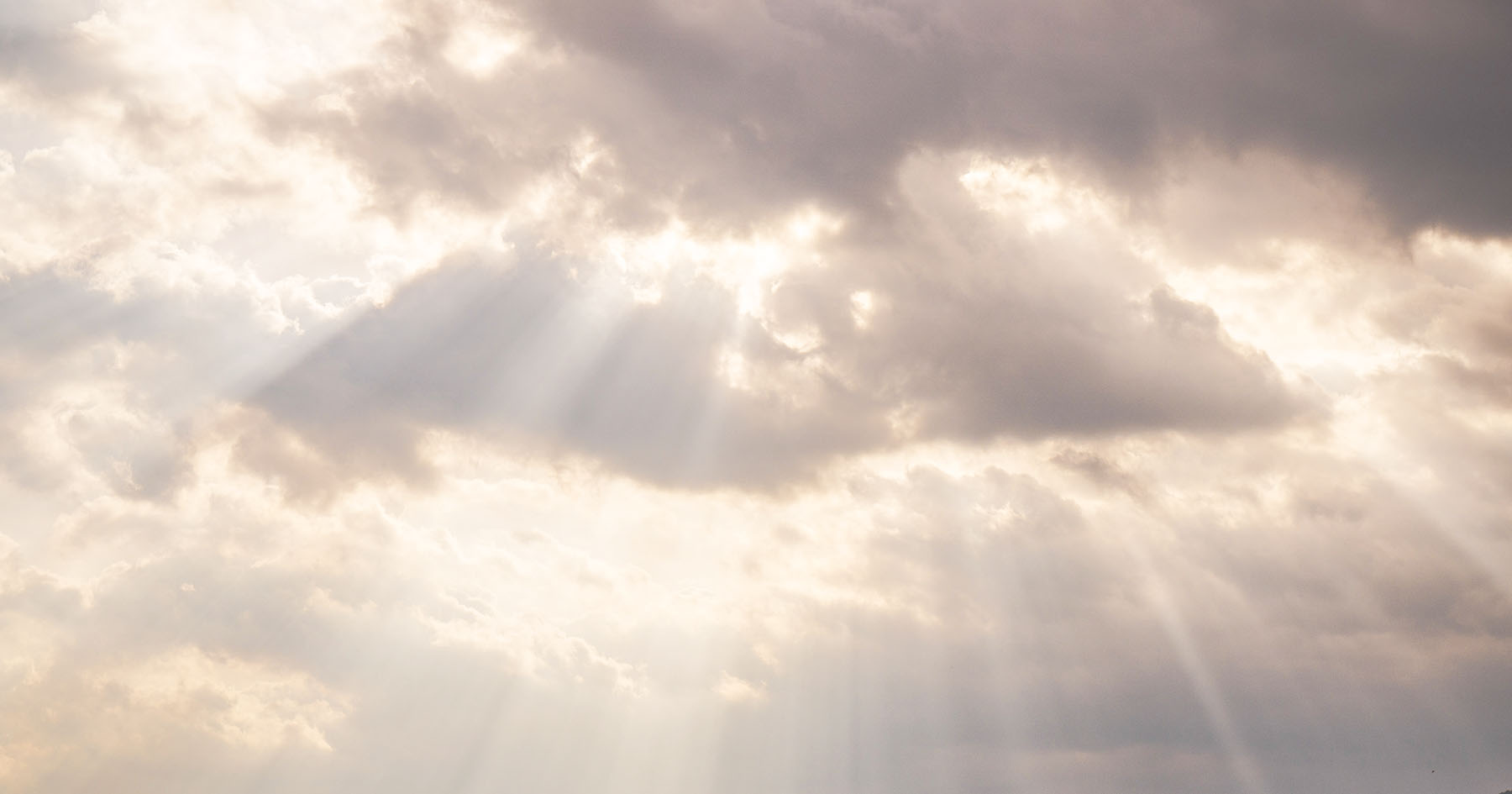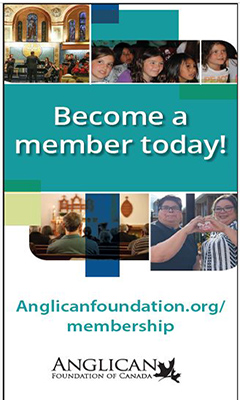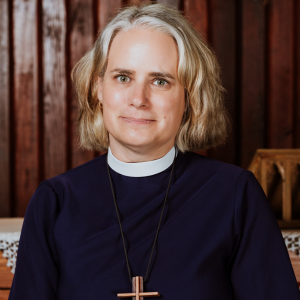This text is from the charge delivered by Bishop Anna Greenwood-Lee during her sermon at the opening eucharist at the 101st synod held in May 2023.
May only the truth be spoken and only the truth be heard. Amen.
Our first reading this evening was from the Book of Acts (15: 22-31) by coincidence. But it was a suitable reading for today because — while it might not have seemed all that interesting to you — it was a reading about the Council of Jerusalem, which was really a synod of sorts that was held early on in the history of the emerging church to figure out what to do with the gentiles. Did they need to be circumcised? Did they need to follow the dietary laws? Were the old rules going to work in a new day? And of course, the answer was no. Some of the tradition was going to be carried into the future, but not all of it. The rejoicing at the end of today’s reading was that they didn’t all need to be circumcised!
For Jesus, as lovely as he was, didn’t spell it all out for us. He told us to love one another, to lay down one’s own life for one’s friends, and to bear fruit — fruit that will last. But just how to do that — the nitty gritty of it — the dietary laws and such, well, that was left to us to figure out. And that, dare I say, changes from age to age, from group to group, and from place to place.
We gather this evening and tomorrow morning for the 101st synod of this Diocese. And once, dare I say, an institution gets to the age of 101, it is no doubt time to ask, “What is it from our past — from our rich, varied, beautiful and broken past — that we are going to continue to carry with us and what might we need to adapt, change or let go of?”
The business of this 101st synod will be conducted on Zoom tomorrow. Imagine for a moment if you were at the first synod and they told you that at the 101st synod, people were going to sit in front of these magic screens, and be able to talk with and see people from across the diocese, sitting in their own living rooms and churches and kitchens! This his would have sounded absurd and impossible. But here we are.
If you’ve heard me preach or teach in the last while, you’ve no doubt heard a variation of the only sermon I’m giving these days. It goes like this — the future is not going to look like the past. At this point I usually stop and ask people, “How does that make you feel to hear your bishop say that to you? Are you sad, anxious, excited, afraid, uncertain, hopeful, curious or skeptical? All of the above? None of the above?”
It probably depends a little bit on what the past looked like for you. If you are a slave in Egypt or a survivor of residential schools, and a church leader tells you that the future is not going to look like the past, this might sound like good news. But if you are a priest in Solomon’s temple or a priest who remembers the days of confirmation classes with 35 young people, this might sound like bad news. If you are the poor, you might be looking forward to being filled with good things. But if you are the rich, you might be worried about being turned away empty.
But the future — the future is not going to look like the past. And the future is bright.
I’ve searched the Hebrew scriptures and the New Testament a few times, and I have never found a story where God has come to any person or group of people and said, “Stay as you are, don’t change anything. I’m going to make this easy for you.” But oh, how we long for this to be the case.
As well, God has also never come to any group of people and said, “Throw the baby out with the bathwater. Get rid of everything. Start over entirely.” The truth is always somewhere in between.
Many of the motions we are going to consider over Zoom tomorrow are not — I will be the first to admit — particularly exciting. Most of our work tomorrow will be to amend some canons. We are both going to change a few canons so that our life together is more efficient and sensible, and we are also going to, I hope, commit to — between now and the next synod — to having a look at the canons as a whole and undertake a rewrite.
Our canons are important. I think of them as our guardrails. They create a governance structure. They provide checks and balances to authority and decision-making processes. They allow for representation from across our church. They are meant to keep us from going too far off the road, from getting into trouble, from falling off a cliff or driving into opposing traffic.
But sometimes they end up being not guardrails but roadblocks. Sometimes — and this isn’t their fault — they just hadn’t seen the future coming, didn’t foresee changing demographics or new situations and they become a roadblock. We realise that this or that canon is a bit like asking someone to be circumcised or to follow complicated dietary laws before they can join us. It just doesn’t make sense. It’s time to find a new way.
For we know that the future is not going to look like the past. We know that this Diocese of Islands and inlets is now the most secular one in North America. We know deep in our hearts that reconciliation is a journey we have only just begun and we have a long way to travel on.
Today we gather in our cathedral church. Our cathedral sits on the traditional and unceded land of the lək̓ʷəŋən (Lekwungen) People, known today as the Esquimalt and Songhees Nations. Lekwungen means literally “place to smoke herring” and this spot at the top of the hill, not far from the natural harbour, has been an important site for thousands of years before Britain declared in 1849, that this land — indeed this whole island — was a crown colony.
Britain then leased the colony to the Hudson’s Bay Company for the nominal price of 7 shillings, and in 1854, the company then granted this land to the church as a sign that they were indeed fulfilling its duty to create a settlement. That we are here today on this spot is very much a legacy of colonialism.
Colonialism, while it favored those of us of British and European descent, was violent and unjust and brought death to so many of God’s children. The 1862 smallpox epidemic is estimated to have killed at least 50 per cent of the Indigenous population in these islands and inlets. In 1872, shortly after British Columbia joined Confederation, laws were passed denying those Indigenous peoples — and peoples of Chinese and Asian descent — the right to vote. At that time, it is estimated that these peoples made up approximately 80 per cent of the population.
St Michael’s Residential School in Alert Bay was built in 1882. In 1885, the potlatch was banned — a ban that was only lifted in 1951, the same year that the Indian Act also lifted its prohibition on Indigenous peoples hiring or training to be a lawyer.
And so my friends, when I say to you that the future is not going to look like the past, I hope that you can see God’s hand in that. There is much in our past that is good and life-giving, but there is also much in our past we must repent for and let go of.
For we are called by the one God of all time and space to love one another, to do justice, love and kindness, and to walk humbly with our God. And we have not always done that. We have not always lived by our baptismal covenant to respect the dignity of every human being, to safeguard the integrity of God’s creation, and to love our neighbours as ourselves.
We need to find a new way of being the ancient church — a new way of living our ancient faith. And we are doing that. As I travel around this diocese, I am heartened by all the ways you are, as God’s people, making our ancient faith ever new.
Tomorrow morning as part of our synod, we are going to hear about the incredible ministry that is currently happening in Alert Bay, shepherded by the first Indigenous priest of this diocese, Sheila Cook. We are going to hear about the refugee sponsorships program in this diocese. And we are going to hear about how a number of our parishes, this cathedral included, are looking at redeveloping their properties so that they can better serve their communities.
The future — the future is not going to look like the past. And the future is bright.
In all that we do together, I’d ask and invite us all to check back in with our baptismal covenant. As we consider changing our canons, redevelop properties, work towards reconciliation and social justice, and continue to serve with compassion and love, let us not be afraid to look at our history, and as our baptismal covenant says, know that whenever we fall into sin we must repent and return to the lord.
Let us hold fast to the apostles’ teachings and fellowship, the breaking of the bread and the prayers to safeguard the integrity of God’s creation and to find new ways to love, serve, and live out our baptismal covenant. We cannot go too far wrong —either individually or collectively — as long as we live into that covenant.
And so now, to conclude this charge to synod, I ask nothing more of you and nothing less than that you stand and join with me in renewing your baptismal covenant, confident that the future is not going to look like the past and that the future — the future is bright. Amen.




